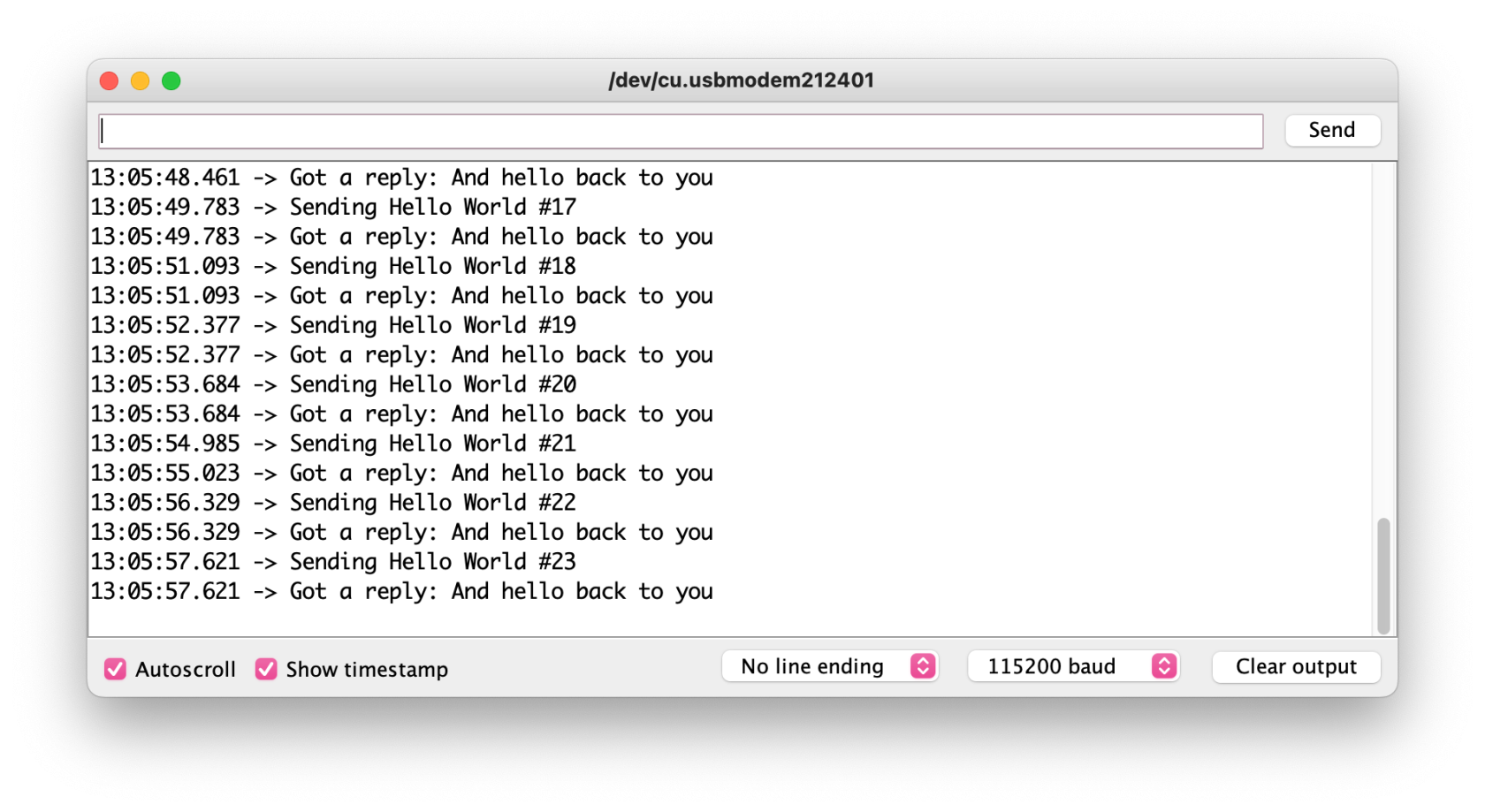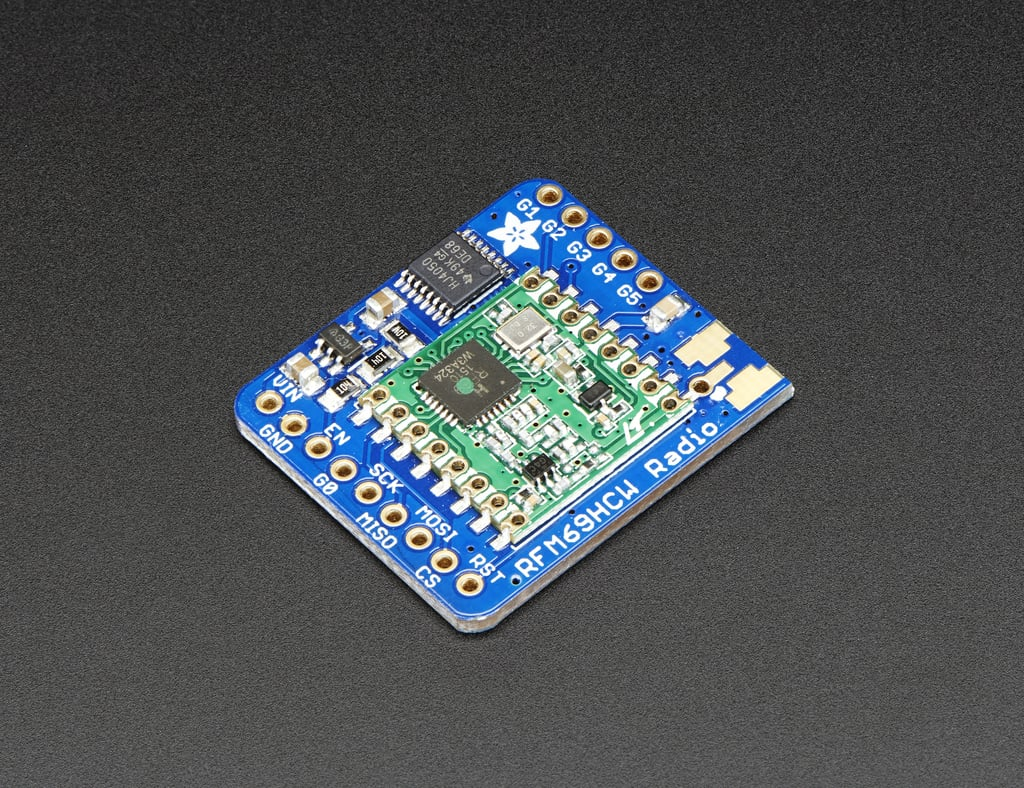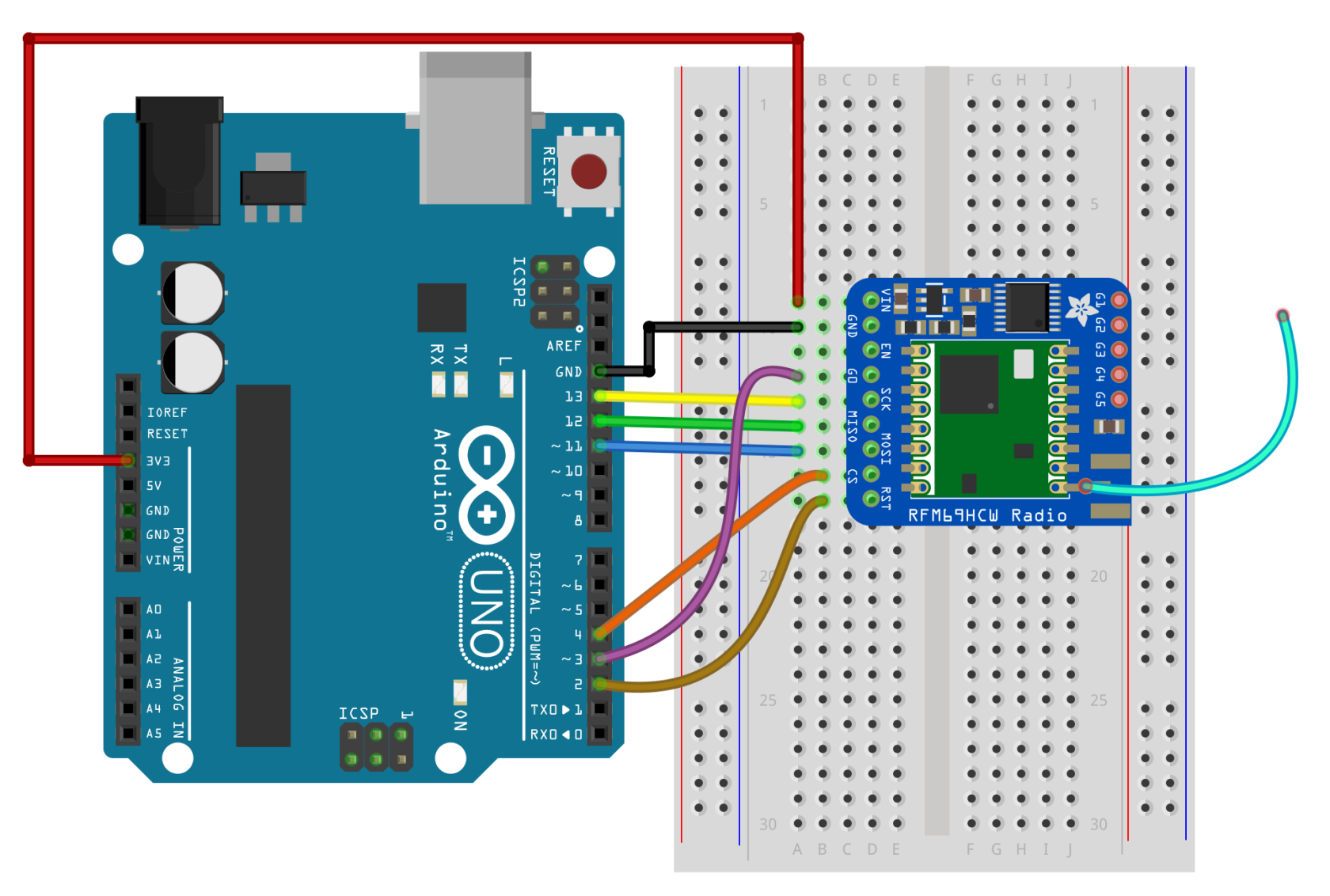Radio Communication: How to use RFM69HCW Radio Data Module
What is RFM69HCW Radio Data Module?
The RFM69HCW is a high-performance, low-power radio transceiver module designed for long-range wireless communication using sub-GHz frequencies. Unlike simple UART-based modules like the APC220, the RFM69HCW offers SPI communication, encryption, and packet-based transmission, making it highly suitable for more complex and secure wireless sensor networks.
In this tutorial, we will be using two Arduino UNO, one for sending and one for receiving. RFM69HCW comes with different versions, we are using the 433 MHz version in this tutorial.
Differences from APC220
| Feature | APC220 | RFM69HCW |
|---|---|---|
| Communication Interface | UART (Serial) | SPI |
| Operating Frequency | 433 MHz | 433 / 868 / 915 MHz (depending on model) |
| Modulation Type | GFSK | FSK, GFSK, OOK |
| Communication Range | ~1000 m (line of sight) | 500 m – 1500+ m (configurable) |
| Data Rate | 1200 – 19200 bps | Up to 300 kbps |
| Encryption | ❌ Not supported | ✅ 128-bit AES encryption |
| Power Supply | 3.3V – 5V | 1.8V – 3.6V |
| Topology | Point-to-point | Point-to-point or mesh |
| Library Required | No (uses standard Serial) | Yes (RadioHead, RFM69, etc.) |
| Use Case Simplicity | Beginner-friendly | Requires more setup/code |
Wiring (same wiring for both)
3.3V Only
RFM69HCW runs on 3.3V — powering it from 5V can permanently damage it.
- GND to GND
- VIN to 3.3V
- SCK to D13
- MISO to D12
- MOSI to D11
- CS to D4
- RST to D2
- G0 (IRQ) to D3
Library
Download the RadioHead library here. We have a tutorial on how to install a library here.
Getting started
Sending
#include <SPI.h>
#include <RH_RF69.h>
/************ Radio Setup ***************/
// Change to 434.0 or other frequency, must match RX's freq!
#define RF69_FREQ 434.0
#define RFM69_CS 4
#define RFM69_INT 3
#define RFM69_RST 2
#define LED 13
// Singleton instance of the radio driver
RH_RF69 rf69(RFM69_CS, RFM69_INT);
int16_t packetnum = 0; // packet counter, we increment per xmission
void setup() {
Serial.begin(115200);
//while (!Serial) delay(1); // Wait for Serial Console (comment out line if no computer)
pinMode(LED, OUTPUT);
pinMode(RFM69_RST, OUTPUT);
digitalWrite(RFM69_RST, LOW);
Serial.println("RFM69 TX Test!");
Serial.println();
// manual reset
digitalWrite(RFM69_RST, HIGH);
delay(10);
digitalWrite(RFM69_RST, LOW);
delay(10);
if (!rf69.init()) {
Serial.println("RFM69 radio init failed");
while (1);
}
Serial.println("RFM69 radio init OK!");
// Defaults after init are 434.0MHz, modulation GFSK_Rb250Fd250, +13dbM (for low power module)
// No encryption
if (!rf69.setFrequency(RF69_FREQ)) {
Serial.println("setFrequency failed");
}
// If you are using a high power RF69 eg RFM69HW, you *must* set a Tx power with the
// ishighpowermodule flag set like this:
rf69.setTxPower(20, true); // range from 14-20 for power, 2nd arg must be true for 69HCW
// The encryption key has to be the same as the one in the server
uint8_t key[] = { 0x01, 0x02, 0x03, 0x04, 0x05, 0x06, 0x07, 0x08,
0x01, 0x02, 0x03, 0x04, 0x05, 0x06, 0x07, 0x08};
rf69.setEncryptionKey(key);
Serial.print("RFM69 radio @"); Serial.print((int)RF69_FREQ); Serial.println(" MHz");
}
void loop() {
delay(1000); // Wait 1 second between transmits, could also 'sleep' here!
char radiopacket[20] = "Hello World #";
itoa(packetnum++, radiopacket+13, 10);
Serial.print("Sending "); Serial.println(radiopacket);
// Send a message!
rf69.send((uint8_t *)radiopacket, strlen(radiopacket));
rf69.waitPacketSent();
// Now wait for a reply
uint8_t buf[RH_RF69_MAX_MESSAGE_LEN];
uint8_t len = sizeof(buf);
if (rf69.waitAvailableTimeout(500)) {
// Should be a reply message for us now
if (rf69.recv(buf, &len)) {
Serial.print("Got a reply: ");
Serial.println((char*)buf);
Blink(LED, 50, 3); // blink LED 3 times, 50ms between blinks
} else {
Serial.println("Receive failed");
}
} else {
Serial.println("No reply, is another RFM69 listening?");
}
}
void Blink(byte pin, byte delay_ms, byte loops) {
while (loops--) {
digitalWrite(pin, HIGH);
delay(delay_ms);
digitalWrite(pin, LOW);
delay(delay_ms);
}
}
Receiving
#include <SPI.h>
#include <RH_RF69.h>
/************ Radio Setup ***************/
#define RF69_FREQ 434.0
#define RFM69_CS 4
#define RFM69_INT 3
#define RFM69_RST 2
#define LED 13
// Singleton instance of the radio driver
RH_RF69 rf69(RFM69_CS, RFM69_INT);
void setup() {
Serial.begin(115200);
//while (!Serial) delay(1); // Wait for Serial Console (comment out line if no computer)
pinMode(LED, OUTPUT);
pinMode(RFM69_RST, OUTPUT);
digitalWrite(RFM69_RST, LOW);
Serial.println("RFM69 RX Test!");
Serial.println();
// manual reset
digitalWrite(RFM69_RST, HIGH);
delay(10);
digitalWrite(RFM69_RST, LOW);
delay(10);
if (!rf69.init()) {
Serial.println("RFM69 radio init failed");
while (1);
}
Serial.println("RFM69 radio init OK!");
// Defaults after init are 434.0MHz, modulation GFSK_Rb250Fd250, +13dbM (for low power module)
// No encryption
if (!rf69.setFrequency(RF69_FREQ)) {
Serial.println("setFrequency failed");
}
// If you are using a high power RF69 eg RFM69HW, you *must* set a Tx power with the
// ishighpowermodule flag set like this:
rf69.setTxPower(20, true); // range from 14-20 for power, 2nd arg must be true for 69HCW
// The encryption key has to be the same as the one in the server
uint8_t key[] = { 0x01, 0x02, 0x03, 0x04, 0x05, 0x06, 0x07, 0x08,
0x01, 0x02, 0x03, 0x04, 0x05, 0x06, 0x07, 0x08};
rf69.setEncryptionKey(key);
Serial.print("RFM69 radio @"); Serial.print((int)RF69_FREQ); Serial.println(" MHz");
}
void loop() {
if (rf69.available()) {
// Should be a message for us now
uint8_t buf[RH_RF69_MAX_MESSAGE_LEN];
uint8_t len = sizeof(buf);
if (rf69.recv(buf, &len)) {
if (!len) return;
buf[len] = 0;
Serial.print("Received [");
Serial.print(len);
Serial.print("]: ");
Serial.println((char*)buf);
Serial.print("RSSI: ");
Serial.println(rf69.lastRssi(), DEC);
if (strstr((char *)buf, "Hello World")) {
// Send a reply!
uint8_t data[] = "And hello back to you";
rf69.send(data, sizeof(data));
rf69.waitPacketSent();
Serial.println("Sent a reply");
Blink(LED, 40, 3); // blink LED 3 times, 40ms between blinks
}
} else {
Serial.println("Receive failed");
}
}
}
void Blink(byte pin, byte delay_ms, byte loops) {
while (loops--) {
digitalWrite(pin, HIGH);
delay(delay_ms);
digitalWrite(pin, LOW);
delay(delay_ms);
}
}
Testing
Open Serial Monitor on the Sender Arduino, and you should see something like this.



